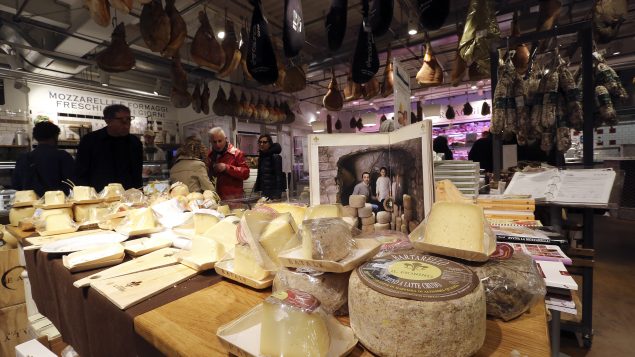Canada and the European Union marked the one year anniversary of a free trade pact that despite lingering opposition has led to a healthy growth in trade between the two, officials in Ottawa and Brussels said.
The Canada-European Union Comprehensive Economic and Trade Agreement (CETA) came into provisional force one year ago today, sweeping away tariffs on 98 per cent of goods.
And Canadian consumers and businesses are already reaping its benefits, said Canada’s Minister of International Trade Diversification James Carr.
CETA opened up the world’s most lucrative market with 510 million consumers to Canadian business, Carr said.
“This has translated into an almost 10-per-cent increase in trade since CETA went into effect – or $100 billion in bilateral trade,” Carr said in a statement.
“Striking examples include a 206-per-cent increase in aluminum exports to the European Union, while motor vehicles and parts are up 96 per cent, mineral fuels and oils are up 46 per cent and organic blueberries are up 28 per cent.”
‘Plenty to celebrate’

Quebec Premier Philippe Couillard, left, looks on as Prime Minister Justin Trudeau speaks to workers and reporters at a news conference during a visit of the Rio Tinto AP60 aluminum plant Monday, March 12, 2018 in Saguenay Quebec. (Jacques Boissinot/THE CANADIAN PRESS)
Between October of last year and July 2018, Canada also saw big gains in plastics, wood pulp, base metals and pharmaceutical exports to the EU, the minister added.
EU Commissioner for Trade Cecilia Malmström said the “preliminary data shows there is plenty to celebrate, even at this stage.”
Sectors such as machinery and mechanical appliances, pharmaceuticals, furniture, footwear and clothing in the EU were all doing especially well under CETA, the commission wrote in a statement.
For example Italian producers of San Daniele ham saw their sales to Canada increase by 35 per cent. A Belgian chocolate company has just opened its first shop in Ontario to cope with extra demand, the statement said.
Lingering opposition

Cheese corner is pictured at the Eataly food market store in the former Smeraldo theatre downtown Milan, Italy, March 20, 2016. (Stefano Rellandini/REUTERS)
CETA will only enter into force fully and definitively, when all EU member states have ratified the agreement.
However, opposition has flared up again in recent months, with Italy’s new populist government threatening not to ratify the deal in the Italian parliament, claiming it does not ensure sufficient protection for the country’s speciality foods.
In the 28-member European Union, Italy has the most food products with Protected Designation of Origin (PDO) and Protected Geographical Indication (PGI) labels, including Parmigiano Reggiano cheese and Prosciutto di Parma ham.
Critics also believe CETA may erode European consumer standards and cause problems for EU economies, including uncertainty over investor rights.
Austria, Croatia, Czech Republic, Denmark, Estonia, Latvia, Lithuania, Malta, Portugal and Spain have already ratified the agreement.







For reasons beyond our control, and for an undetermined period of time, our comment section is now closed. However, our social networks remain open to your contributions.